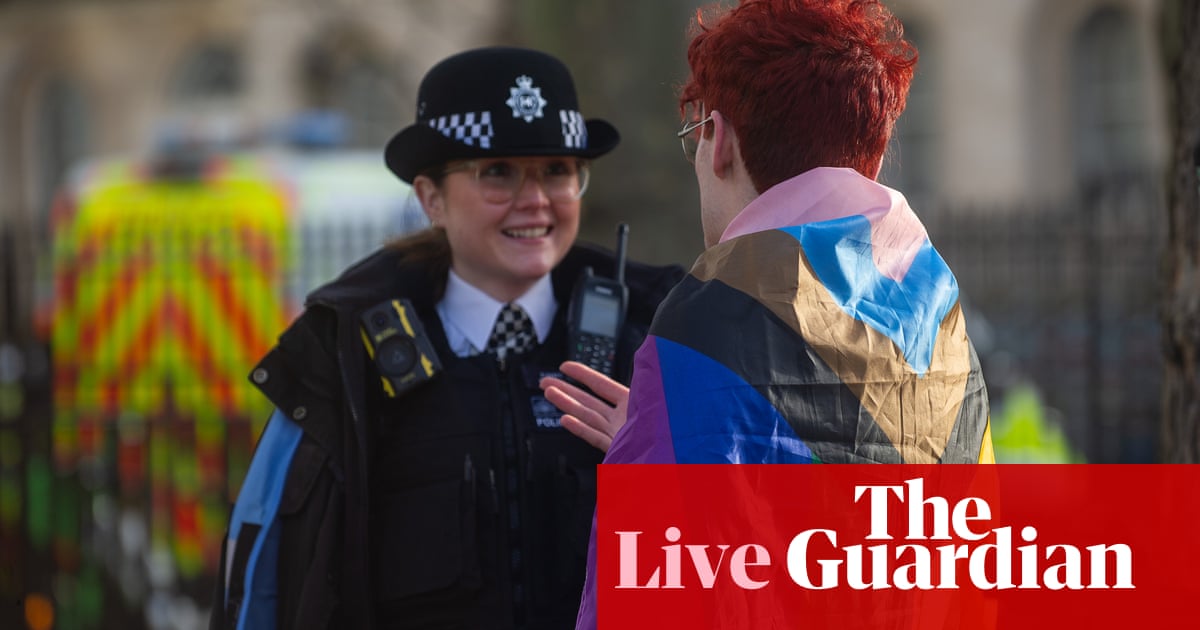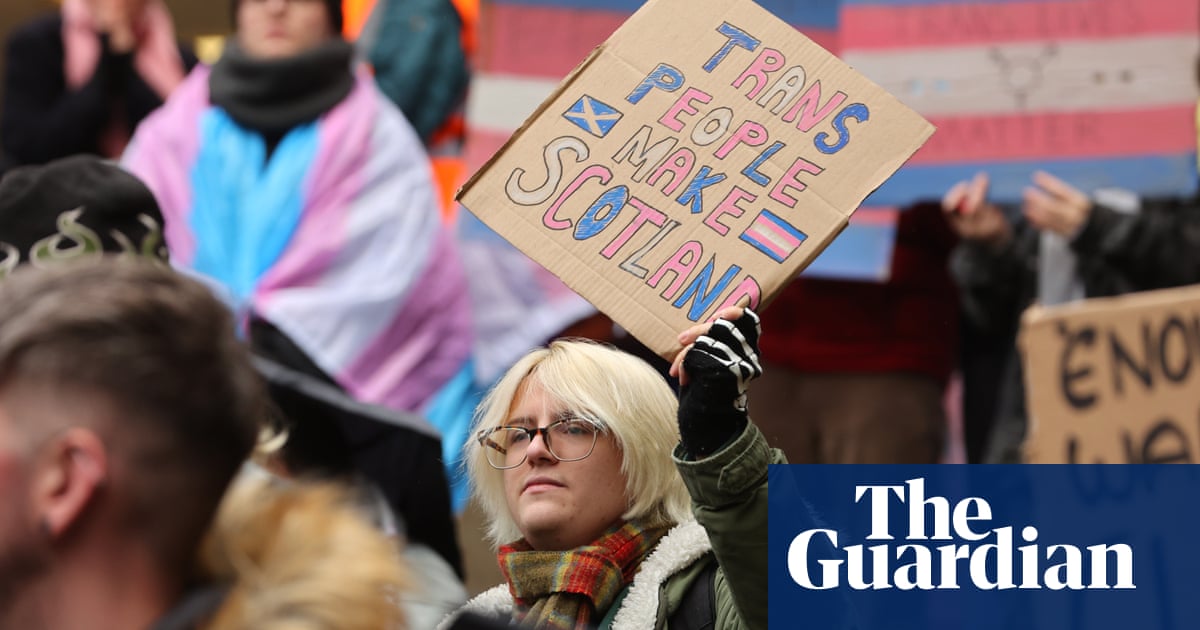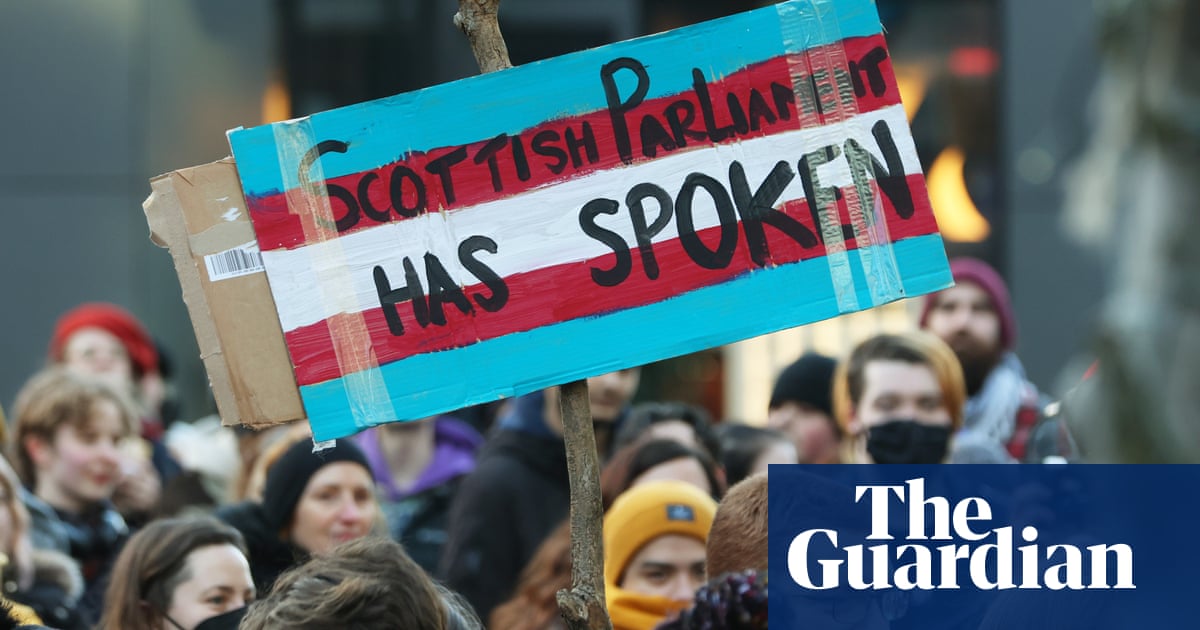
The Scottish government has hailed a “historic day for equality” after MSPs approved plans to make it easier and less intrusive for individuals to legally change their gender, extending the new system of self-identification to 16- and 17-year-olds for the first time.
Six years after it was proposed by the first minister, Nicola Sturgeon, after two of the largest public consultations in the history of the Scottish parliament and amid an increasingly toxic and polarised political discourse, the bill was passed by MSPs on Thursday in a specially extended session.
As a mark of the escalating tensions surrounding the changes, the debate was disrupted minutes before the final vote by protesters in the public gallery shouting “shame on you” and “this is the darkest day”.
The final vote followed an unprecedented two days of debate as members worked cross-party and past midnight on more than 150 amendments to address concerns about abusive males potentially taking advantage of the new system, and its impact on UK equality law.
The gender recognition reform (Scotland) bill removes the need for a psychiatric diagnosis of gender dysphoria in order to obtain a gender recognition certificate (GRC), and extends the application process to 16- and 17-year-olds for the first time.
Scotland’s new self-identification system will also reduce the time someone must have been permanently living in their acquired gender before they can apply – from two years to three months, or six months for those aged 16 and 17 – with a three-month reflection period during which an individual can change their mind.
Despite the concerns of some SNP backbenchers, the bill passed comfortably with support from the Scottish Greens, Labour and the Scottish Liberal Democrats. Nine SNP MSPs voted against their government, including Ash Regan, the former minister who quit in protest at the first vote. Two Labour members – who were whipped to vote in favour – also rebelled, while three Tories, who were allowed a free vote, supported it.
Proposing the final version of the bill to parliament, the social justice minister, Shona Robison, said that, like equal marriage and civil partnership legislation before it, “this is an important step to creating a more equal Scotland”.
Robison insisted that applying for a GRC under the new system would continue to be “a substantial and significant legal process”, with safeguards strengthened during the passage of the bill, and the bill “doesn’t change public policy … around provision of single-sex spaces and services”.
She told MSPs: “Trans rights are not in competition with women’s rights and, as so often before, we can improve things for everyone when those discriminated against act as allies not opponents.”
But the Scottish Conservatives’ equalities spokesperson, Rachael Hamilton, told Robison that her government had not brought the people of Scotland with them, and that “in the rush to make the process a little easier for trans people, the government is making it easier for criminal men to attack women”.
Following UK government briefings that the new law would create “legal chaos” and result in “gender tourism”, Hamilton said the rush to pass the legislation a few days before Christmas had resulted in “a subpar, shoddy piece of legislation that is not fit to pass into law”. She added: “This bill will be a legacy issue for the first minister, and not in the way she hopes, because … women won’t wheesht [be quiet]. This government is not listening and our voices will be heard”.
At the last first minister’s questions of the year, held immediately before the debate, Nicola Sturgeon said she would “never apologise for trying to spread equality, not reduce it in our country” when pressed by the Scottish Tory leader, Douglas Ross, on the safeguarding elements of the bill.
On Tuesday, the Scottish government accepted a cross-party amendment from the SNP’s Gillian Martin and the Scottish Tory Jamie Greene that would mean anyone convicted of a sexual offence who wants to apply for a certificate will need to be fully risk-assessed.
During the final debate, MSPs expressed the same divergent but largely respectful opinions that have been apparent throughout the bill’s progress.
Michelle Thomson, one of the most prominent SNP rebels, told the chamber that “there are far too many people, even elected representatives, who felt unable to participate in discussions because of its toxic nature”.
Labour deputy Jackie Baillie, voiced the frustrations of many members at the filibuster tactics employed by the Tories over the past 48 hours as they tried to delay the vote into the new year, saying she would “much rather use the hours wasted in debating the bill”.
Stonewall’s director of nations, Colin MacFarlane, said: “This is a tremendous step forward for trans rights and for LGBTQ+ people in Scotland. It brings Scotland into line with international best practice and once again establishes itself as a world leader on human rights, by making a small change which brings dignity to trans people who deserve to be legally recognised for who they are.”












